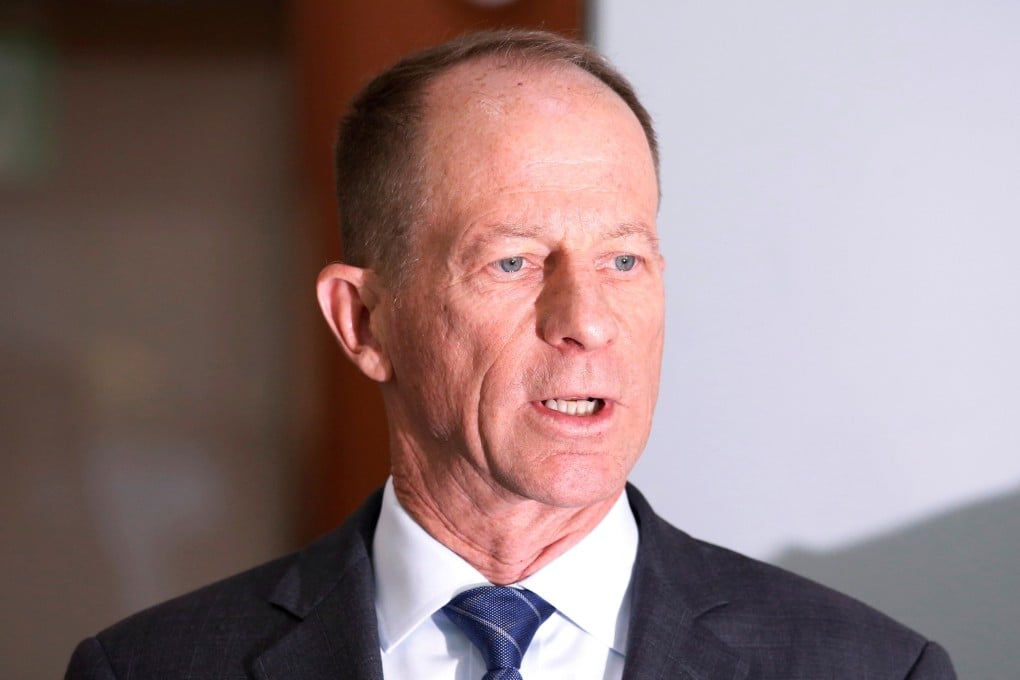US could apply sanctions for ‘illegal’ South China Sea claims, senior diplomat says
- ‘This is a language the Chinese understand – demonstrative and tangible action,’ says senior diplomat
- The comments follow an announcement Monday that the US will take a tougher line in the contested region

“Nothing is off the table,” said David Stilwell, US assistant secretary of state for East Asia. “There is room for that. This is a language the Chinese understand – demonstrative and tangible action.”
Stilwell, speaking at a conference sponsored by the Centre for Strategic and International Studies, said Beijing’s behaviour in the South China Sea – including strong-arm tactics against smaller nations and defiance of international treaties – has implications far beyond the region as China’s influence expands globally.
“You could be a university student in Australia, a book publisher in Europe or the general manager of an NBA [National Basketball Association] franchise in Houston. You might work for an international hotel chain, a German car company, or a US airline,” he said. “Wherever you are, Beijing increasingly wants to stake claims, coerce, and control.